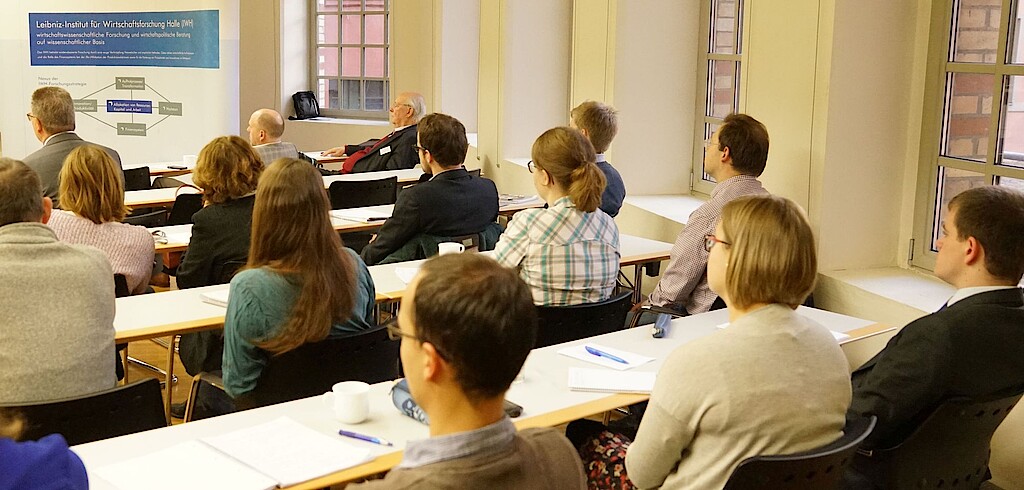
14:15 - 15:45
Uncertainty, Wages, and the Business Cycle
We show that occasional deviations from efficient wage-setting generate strong and statedependent amplication of exogenous uncertainty shocks and contribute to explain the observed countercyclicality of empirical measures of aggregate uncertainty.
Wer
Wo
We show that occasional deviations from effcient wage-setting generate strong and statedependent amplication of exogenous uncertainty shocks and contribute to explain the observed countercyclicality of empirical measures of aggregate uncertainty. Central to our analysis is the existence of matching frictions in the labor market and an occasionally binding constraint on downward wage adjustment. The wage constraint enhances the concavity of the firms’ hiring rule, generating an endogenous profit-risk premium. In turn, uncertainty shocks increase the profit-risk premium when the economy operates close to the wage constraint. This implies that higher uncertainty can severely deepen a recession although its impact is weaker on average. Additionally, the variance of the unforecastable component of future economic outcomes always increases at times of low economic activity. Thus, measured uncertainty rises in a recession even in the absence of uncertainty shocks. We obtain our results using a fourth-order Taylor expansion to the model policy functions, approximating the non-convexity in the wage decision rule with a novel implementation of penalty function methods.
Ihr Kontakt

Wissenschaftlicher Mitarbeiter
Für Rückfragen stehe ich Ihnen gerne zur Verfügung.
+49 345 7753-865 Anfrage per E-Mail



